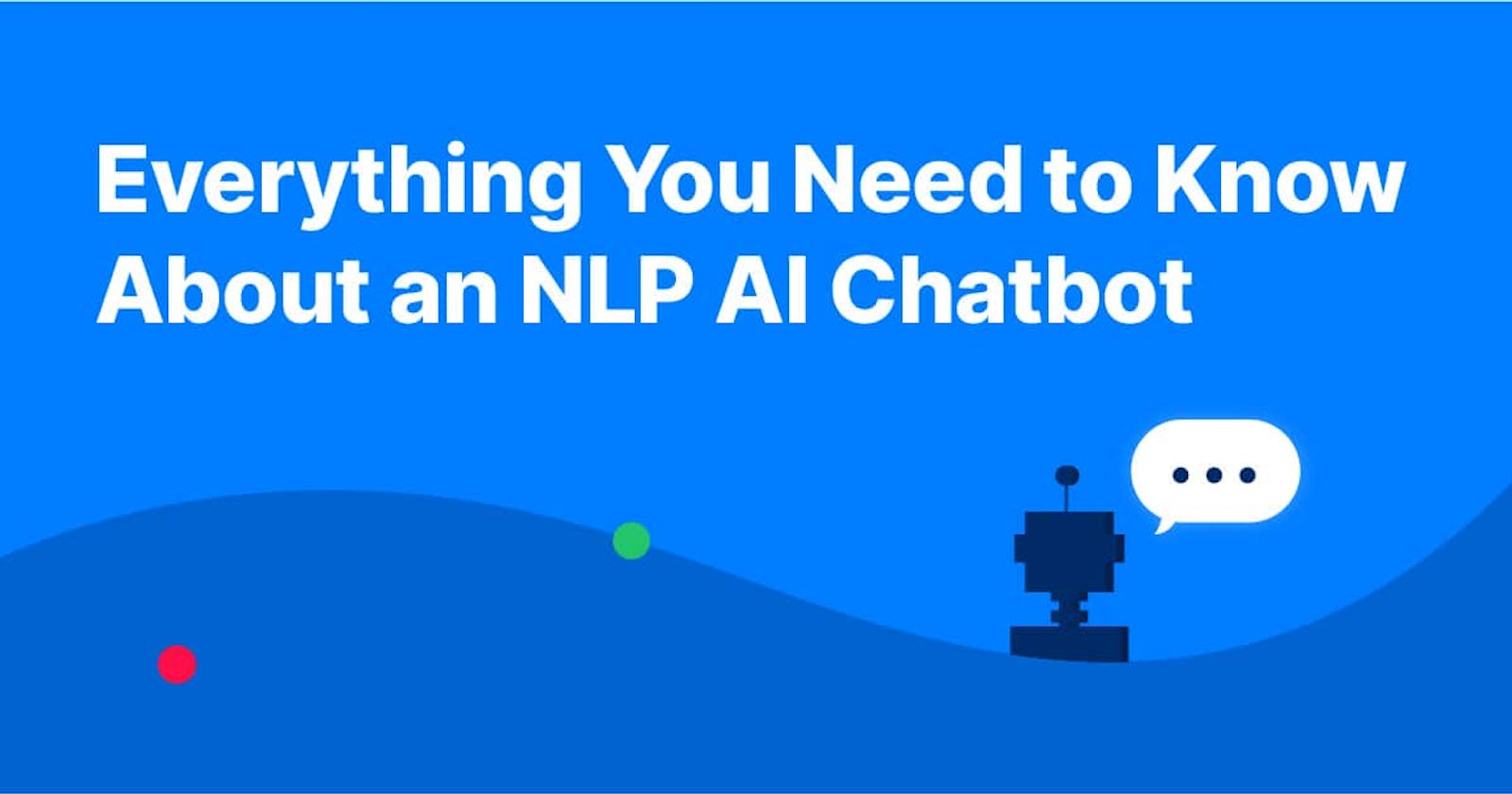Chatbots with NLP - An overview of how NLP can be used to power conversational agents, also known as chatbots.
Introduction:
Chatbots are a type of conversational agent that uses natural language processing (NLP) to understand and respond to user queries in a human-like way. Chatbots can be used for a variety of purposes, including customer service, lead generation, and even as virtual assistants.
The use of chatbots has exploded in recent years, with many businesses adopting them to improve customer service and enhance the user experience. In this blog, we will explore the use of chatbots with NLP and how they are used to create effective conversational agents.
What are Chatbots with NLP?
Chatbots are software programs designed to simulate human conversation through a chat interface. They are typically powered by artificial intelligence (AI) and machine learning algorithms that enable them to understand and respond to user queries in a natural, human-like way.
NLP is a branch of AI that enables machines to understand human language and respond to it. It allows chatbots to analyze and interpret user queries, determine the intent behind them, and generate appropriate responses. This technology enables chatbots to interact with users in a more natural and intuitive way, providing a better user experience.
How do Chatbots with NLP Work?
Chatbots with NLP use a combination of machine learning and natural language processing algorithms to understand and respond to user queries. When a user types a question or statement into the chatbot, the NLP component of the chatbot processes the text to identify the intent and context of the user's query. The chatbot then uses this information to select an appropriate response from a database of pre-programmed responses or to generate a new response using machine learning algorithms.
The machine learning algorithms used by chatbots with NLP enable them to learn from previous interactions and improve their responses over time. This means that the more a chatbot is used, the better it becomes at understanding and responding to user queries.
Benefits of Chatbots with NLP:
Chatbots with NLP offer several benefits for businesses and users alike. Here are some of the key advantages:
Improved Customer Service - Chatbots can provide round-the-clock customer service, allowing users to get answers to their queries at any time of day or night. This can lead to increased customer satisfaction and loyalty.
Personalized Interactions - Chatbots with NLP can understand user intent and provide personalized responses based on their individual preferences and history. This can lead to a more engaging and satisfying user experience.
Cost Savings - Chatbots with NLP can handle a large volume of user queries simultaneously, reducing the need for human customer service representatives and potentially saving businesses money.
Enhanced User Experience - Chatbots with NLP can provide a more natural and intuitive interface for interacting with businesses, reducing the friction and frustration that users may experience when navigating traditional websites or phone menus.
Increased Efficiency - Chatbots with NLP can automate repetitive tasks and free up human customer service representatives to focus on more complex queries and customer interactions.
Use Cases for Chatbots with NLP:
Chatbots with NLP can be used for a wide range of purposes, from customer service and lead generation to virtual assistants and more. Here are some of the key use cases:
Customer Service - Chatbots with NLP can provide round-the-clock customer service, allowing users to get answers to their queries at any time of day or night.
Sales and Lead Generation - Chatbots with NLP can help businesses generate leads and increase sales by engaging with users and guiding them through the sales process.
Virtual Assistants - Chatbots with NLP can act as virtual assistants, helping users with tasks such as scheduling appointments, setting reminders, and more.
Informational Queries - Chatbots with NLP can provide users with information on a wide range of topics, from weather and news updates to product details and more.
Troubleshooting and Support - Chatbots with NLP can help users troubleshoot problems and provide support for technical issues.
Best Practices for Chatbots with NLP:
Creating effective chatbots with NLP requires careful planning and execution. Here are some best practices for creating successful chatbots with NLP:
Understand Your Audience - It is essential to understand your target audience and their needs before creating a chatbot with NLP. This will help you design a chatbot that speaks their language, answers their questions, and meets their expectations.
Define Clear Goals and Use Cases - Define clear goals and use cases for your chatbot with NLP. This will help you create a chatbot that is focused and effective in achieving its intended purpose.
Design a Natural Language Interface - Design a natural language interface that makes it easy for users to interact with the chatbot. Use conversational language, avoid technical jargon, and provide clear and concise responses.
Train and Test the Chatbot - Train and test the chatbot with a variety of user queries and scenarios to ensure that it can understand and respond to them accurately.
Provide Multiple Response Options - Provide multiple response options for users to choose from to ensure that the chatbot can provide the most appropriate response for their query.
Use Rich Media - Use rich media such as images, videos, and emojis to enhance the user experience and make the chatbot more engaging.
Monitor and Analyze Performance - Monitor and analyze the chatbot's performance to identify areas for improvement and ensure that it is meeting its goals and objectives.
Conclusion:
Chatbots with NLP are a powerful tool for businesses looking to enhance their customer service and user experience. By understanding the benefits of chatbots with NLP, identifying use cases, and following best practices for design and implementation, businesses can create effective conversational agents that provide personalized, engaging, and efficient interactions with their customers. As technology continues to evolve, chatbots with NLP are sure to play an increasingly important role in the way that businesses interact with their customers.
